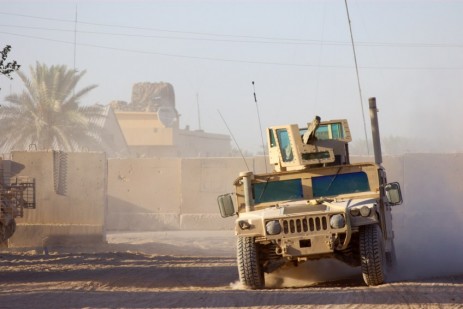 Discussions of how to respond to climate change often involve Very Large Numbers — the needed investments to transition to a fully renewable energy system are in the hundreds of billions. The brain sort of shuts down when it encounters numbers like that. They are too big to fathom. The one thing that does seem true about them is that nobody’s ever going to spend that kind of money on anything. Right? It seems hopeless.
Discussions of how to respond to climate change often involve Very Large Numbers — the needed investments to transition to a fully renewable energy system are in the hundreds of billions. The brain sort of shuts down when it encounters numbers like that. They are too big to fathom. The one thing that does seem true about them is that nobody’s ever going to spend that kind of money on anything. Right? It seems hopeless.
So I always enjoy it when someone comes along to provide some perspective, a comparison that can give us context and help us see the numbers afresh. Today, wind analyst Paul Gipe asks, how much renewable energy could we have gotten from what we spent on the Iraq War?
The total cost of the Iraq War, including future costs to care for veterans, is $2.2 trillion. If we include the interest we have to pay on the debt we used to finance the war, that figure rises to $3.9 trillion by 2053. (See Gipe’s article for sources and details.)
So what could that get us? Gipe gets deep into the weeds on renewables cost and yields, but here’s the top-line conclusion:
If we had invested the $2.2 trillion in wind and solar, the US would be generating 21% of its electricity with renewable energy. If we had invested the $3.9 trillion that the war in Iraq will ultimately cost, we would generate nearly 40% of our electricity with new renewables. Combined with the 10% of supply from existing hydroelectricity, the US could have surpassed 50% of total renewables in supply.
He notes that his estimates are extremely conservative, and with some reasonable amendments, that 40 percent figure could easily become 60 percent.
So, let’s call it half. For the price of the Iraq War, the U.S. could have gotten halfway to a fully renewable power supply.
Now, imagine if someone had proposed, in 2003, spending $2.2 trillion of public money over the next 10 years on renewable energy. My God, the outrage! The wailing and rending of garments! It would have been scorned, mocked, dismissed outright by VSPs across the land. Such investments in the nation’s future are too expensive; it would bankrupt us; we would never recover.
And yet, the country survived spending that much on the Iraq War. The economy is growing again; the debt is shrinking. And that’s with $2.2 trillion almost entirely flushed down the toilet, to virtually no long-term benefit. The same money spent on renewables would have produced massive returns in energy security and resilience, new industries and jobs, and an international reputation as a courageous humanitarian leader (rather than a belligerent, lying warmonger).
Next time you hear that responding to climate change is too expensive, ask, compared to what?



